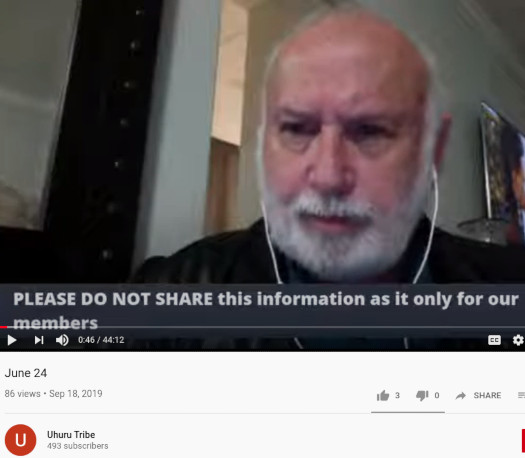CBI Global’s Coenie Botha sues BoN for right to scam people
 The problem with ignoring Ponzi schemes, apart from inevitable widespread losses, is people running them start to believe they’re above the law.
The problem with ignoring Ponzi schemes, apart from inevitable widespread losses, is people running them start to believe they’re above the law.
“Scamming is an inalienable right, how dare you stop me!” That sort of thing.
We’ve seen it in South Africa with Cherie Marks and Mirror Trading International. Charles Scoville in the US took his fight for the right to Ponzi scam to the Supreme Court.
Or tried to. The Supreme Court wasn’t interested.
The latest example of Ponzi scammer outrage over regulation is Coenie Botha in Namibia.
Botha is founder and operator of the CBI Global Ponzi scheme. CBI Global has its roots in Uhuru Tribe.

Prior to running Ponzi schemes, Botha left corporate Namibia under the cloud of a corruption investigation by the Anti-Corruption Commission.
Uhuru Tribe, launched in late 2018, saw Botha target South Africans with UHC Ponzi points.
Uhuru Tribe affiliates invested in UHC Ponzi points, received a ROI and cashed out other people’s money.
Uhuru Tribe collapsed in November 2020, prompting Botha to launch CBI Global.
CBI Global was Uhuru Tribe rebooted, this time with CBI-X Ponzi points.
In mid 2021 CBI Global collapsed. Botha has since rebooted it twice.
For the most part, Botha and his Ponzi schemes have been ignored by regulators in South Africa and Namibia. That changed last month.
The Bank of Namibia froze CBI Global’s and Botha’s known bank accounts in the first week of March.
Testament to Namibia’s failure to regulate MLM securities fraud, Botha is still free to run his Ponzi scheme. He just can’t use Namibian banking channels. At least not officially.
While CBI Global still solicits investment in cryptocurrency, the problem for Botha is he’s targeted a group of mostly crypto illiterate investors.
CBI Global investors want to dump South African rand into CBI Global, watch their CBI-X token balances passively increase, and then cash out other people’s money.
As a result of losing traditional banking channels, investment into CBI Global has collapsed.
Left in the precarious position of heading a Ponzi scheme that has been financial severed by Namibian authorities, but is still free to operate, Botha is now suing the Bank of Namibia.
Confidente reports Botha is
suing the Bank of Namibia (BoN) for N$500 000 per day starting from March 4 for loss of income as well as N$5 million for Botha in his personal capacity.
Backdated at time of publication, Botha is seeking around $1.8 million USD in damages
A mid March court order saw the Namibian High Court confirm CBI Global funds would remain frozen pending the outcome of the BoN’s investigation. Botha did win an “operational expenses” carveout, but that doesn’t appear to have been much.
Suing the BoN appears to be an attempt to show CBI Global investors that he’s doing something. Standard regulatory practice however is, once caught, you sit tight till authorities make their findings public.
All Botha is doing is running up legal fees, paid for by CBI Global investors.
On the flipside Namibia has been turning a blind-eye to Botha’s Ponzi scamming for so long, that it’s uncertain whether he’ll get his way.
Certainly a Ponzi scammer suing Namibia’s top financial regulator for damages isn’t a good look. A decision in favor of Botha would effectively limit BoN’s ability to regulate Ponzi schemes.
Meanwhile something else of concern is Confidente reporting funds frozen by the BoN have affected “at least 4000 Namibians”.
Alexa currently ranks South Africa as the top source of traffic to CBI Global’s website, coming in at 87%. If 4000 Namibian investors are affected by the freeze, tens of thousands more South Africans are in for a lesson on Ponzi math.
Whether South African authorities are working with the Bank of Namibia is unclear. To date South African authorities haven’t taken any public action against Botha, CBI Global or local South African promoters.


FSCA warns the public against Uhuru Tribe, Uhuru-X, Uhuru Cash, CBI X SA (Pty) Ltd (CBI X SA) Registration No. K2019/120406/07, CBI Global and Mr Coenraad Barend Nolte Botha.
We are from SA and also invested money in CBI.